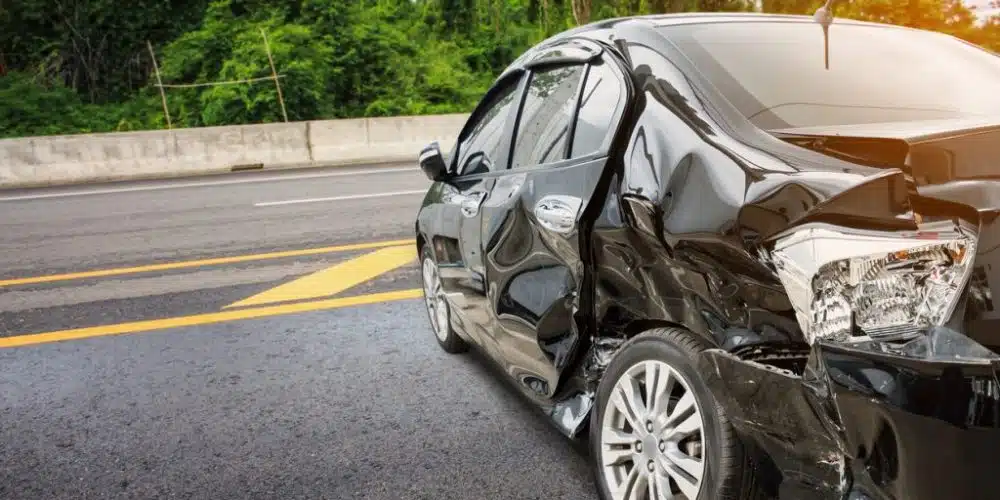Introduction
Car accidents are a common occurrence on the roadways, and when they happen, the aftermath can be daunting. One pivotal decision that car owners must make is whether to handle auto collision repairs themselves or trust these repairs to a professional auto body shop. In this article, we will explore the complexities of DIY versus professional repair options, factors influencing your decision, and the importance of knowing when you should seek expert assistance.
DIY vs. Professional: When to Trust Your Auto Collision Repairs to a Body Shop
When considering auto collision repairs, one may often ponder: "Can I do this myself?" This question often leads individuals down the path of self-sufficiency, armed with tools and a determination to save money. But how does this compare against trusting your vehicle's restoration to seasoned professionals?
Understanding Auto Collision Repairs
Auto collision repairs encompass a wide range of tasks aimed at restoring vehicles damaged car body shop in collisions. This can range from minor dents and scratches to severe structural damages that require extensive expertise. Understanding what these repairs entail is crucial for making an informed decision.
Types of Damage Commonly Repaired
- Dents and Scratches Frame Damage Paint Repair Glass Replacement Bumper Repair or Replacement
Tools Required for DIY Repairs
If you’re leaning towards tackling those repairs yourself, here’s a list of essential tools you might need:
Basic Hand Tools: Wrenches, screwdrivers, pliers Power Tools: Sanders, drills Body Filler: For repairing dents Auto Paints: Essential for repainting sectionsThe Appeal of DIY Repairs
Why would anyone consider taking on auto collision repairs independently? The allure lies primarily in cost savings and personal satisfaction.
Cost Savings
One major advantage is financial; by avoiding labor costs at a body shop, you may save significant amounts of money.
Personal Satisfaction
There’s also an undeniable sense of accomplishment that comes from completing tasks yourself, which can be rewarding!
Limitations of DIY Repairs
However, it’s important to recognize that not all types of damage are suitable for DIY fixes.
Skill Level Required
Do you possess the necessary skills? Many individuals underestimate the complexity involved in auto bodywork.
Quality Control Issues
Even with the best intentions, amateur repairs could lead to sub-par results that may diminish your vehicle’s value.
When Should You Consider Professional Help?
Knowing when to turn over your car repairs to professionals can save time and ensure quality results.
Severity of Damage
Is the damage minor or severe? Minor cosmetic issues might be manageable at home but more serious structural concerns should always go to experts.
Time Constraints
How much time do you have? If you're pressed for time or lacking proper facilities, hiring an experienced team might https://bjbody.com/choose-professional-fleet-auto-body-repair-in-rancho-cordova/ be beneficial.
Choosing the Right Auto Body Shop
If you've decided on professional help, how do you choose an appropriate auto body shop?
Research Local Options
Start by searching for reputable shops within your vicinity—check reviews online and ask friends or family for recommendations.
Assess Credentials and Experience
Ensure that any shop you consider has certified technicians with experience in handling your specific type of damage.
FAQs About Auto Collision Repairs
1. What factors influence my decision between DIY and professional repairs?
Factors include severity of damage, skill level, available tools, and budget constraints.
2. How much can I expect to pay for professional auto collision repairs?
Costs vary widely based on damage severity; minor dings may cost around $100-$500 while major structural work could exceed $5000.
3. Can I use regular paint for my car's touch-ups?
Using specialized auto paints ensures better adhesion and durability than regular paints intended for household use.
4. How long does it typically take for professional repairs?
Minor repairs can take a day or two; extensive work may require weeks depending on parts availability.

5. Will my insurance cover all repair costs?
Coverage varies by policy; it’s advisable to check with your insurance provider regarding specifics related to collision coverage.
6. Is it worth it to invest in high-quality tools if I plan on doing my own collision repair?
High-quality tools generally yield better results but weigh the costs against potential savings from hiring professionals before making an investment.
The Role of Auto Paints in Collision Repair
Color matching is critical when it comes to applying auto paints during collision repair processes; failing at this step can lead to unsightly mismatches that detract from the vehicle's aesthetics.
Types of Auto Paints Used
Acrylic Lacquer Urethane Paint Enamel Paint Water-Based PaintsEach type has its pros and cons—some dry faster while others offer improved durability against environmental factors such as UV rays or moisture exposure.
Conclusion
In summary, deciding between DIY versus professional auto collision repairs involves careful consideration of various factors including skill level, severity of damage, available time resources, and financial implications.
While tackling minor cosmetic fixes yourself can be gratifying—and maybe even financially beneficial—more significant structural damages are best left in the hands of skilled professionals who have both expertise and access to quality materials like specialized auto paints necessary for achieving optimal results.
Ultimately being well-informed about what each option entails allows car owners not only make better decisions but also safeguard their investments—after all no one wants their beloved vehicle looking less than stellar after an accident!
In navigating your choices wisely you’ll find peace-of-mind knowing whether you're rolling up your sleeves or handing over keys—you’ve made the right call!